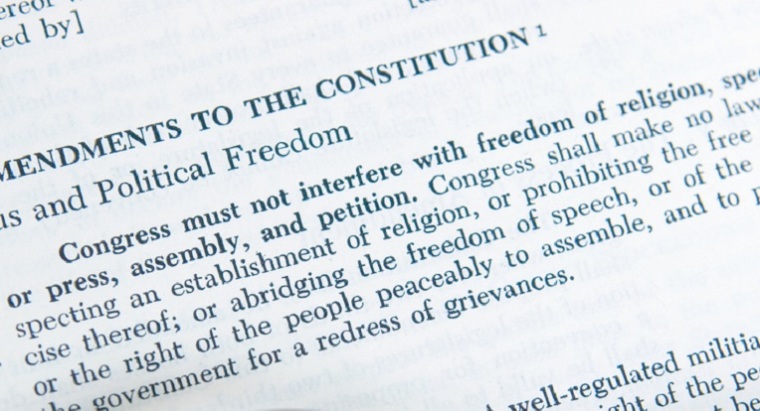Two more attacks on students' religious liberty

EVERETT, Washington (Christian Examiner) – Michael Leal and "Esther" join a growing list of students whose religious liberty freedoms are being challenged or abridged by public schools.
Michael Leal, a senior at Cascade High School in Everett, north of Seattle says all he wants to do is to pass out evangelistic tracts and tell fellow students about Jesus. He's been suspended three times and now faces expulsion.
"Esther" in Sacramento, California, shared invitations with two classmates to a "Biblical Creation" event and was reprimanded and forced to confess her wrongheadedness about evolution.
The pair is not alone.
Just this month, Liz Loverde challenged officials in Long Island, New York who denied her right to form a Bible club and join 30 other student-led activities at her school. Samantha Jones, a high school student in Blackwood, New Jersey, took the initiative to fight atheists who are trying to remove "under God" from the Pledge of Allegiance in her school.
Religious liberty groups like the Alliance Defending Freedom are helping the teens lead the charge in combatting the ongoing culture war on Christianity.
"For decades, the American Civil Liberties Union (ACLU) and other radical anti-Christian groups have been on a mission to eliminate public expression of our nation's faith and heritage," according to AllianceDefendingFreedom.org. "By influencing the government, filing lawsuits, and spreading the myth of the so-called 'separation of church and state,' the opposition has been successful at forcing its leftist agenda on Americans.
"Their targeted attacks on religious liberty are more serious and widespread than you may realize. In courtrooms and schoolrooms, offices and shops, public buildings and even churches...those who believe in God are increasingly threatened, punished, and silenced."
The Pacific Justice Institute is another non-profit that offers legal representation on matters of religious freedom and other civil liberties, and their staff is representing Michael Leal and "Esther."
School officials said Leal was being "disruptive," that students were complaining about the senior's efforts as he passed out evangelistic tracts like "How to Know God" and "Holy Holy Holy."
Leal said he was counseled about proselytizing and admonished for "preaching" at school leaders. Administrators counter that it is not the content of Leal's materials or sermons, but his disruption of the educational process. They also refer to a policy that mandates all non-student-written materials be pre-approved before being handed out on campus.
Leal turned to Seattle attorney Conrad Reynoldson, who brought in Pacific Justice Institute.
"It has been well-established by court precedent that students do not leave their free speech rights at the schoolhouse door," Reynoldson told the Seattle Post-intelligencer, Nov. 18. "Unfortunately certain officials at the school have a disagreement on this matter, which is why it has become necessary to file this lawsuit."
The school district's attorney, Michael Patterson, outlined the school's position in a letter.
"At no time was Mr. Leal told that his distribution of material or his statements were inappropriate at school because of their religious content," Patterson wrote. "Rather, he was informed of district policy ... and told he needed to comply with it."
Leal says otherwise, claiming his principal told him she would be 'breaking the law' if she allowed him to continue proselytizing at school.
"If you allow me to hand out tracts and to talk about Jesus, then you would be breaking the law?" Leal reportedly asked Woods. "Yes," she said according to teen's attorneys in court papers.
In Sacramento, California, a 12-year-old student at Loomis Basin Charter School did not agree with evolution theory being taught in her sixth-grade science class. She shared a flyer promoting "Biblical Creation" to two classmates and a parent complained.
"Esther" was called to the principal's office, reprimanded, and "directed to write an 'Incident Report' confessing her wrongdoing," according to the Pacific Justice Institute. "The acting principal then summoned Esther back to the office several more times to re-write her confession until it was satisfactory."
The school's position – same as that of the Everett, Washington, high school – was that all materials to be distributed must be pre-approved by the principal's office.
"It is a bedrock constitutional principle that a school cannot restrict student speech just because someone disagrees with or dislikes the message," said Brad Dacus, president of Pacific Justice Institute. "Controversy or complaints are not valid bases for restricting student speech; rather, they are opportunities to educate parents and students about our fundamental freedoms."